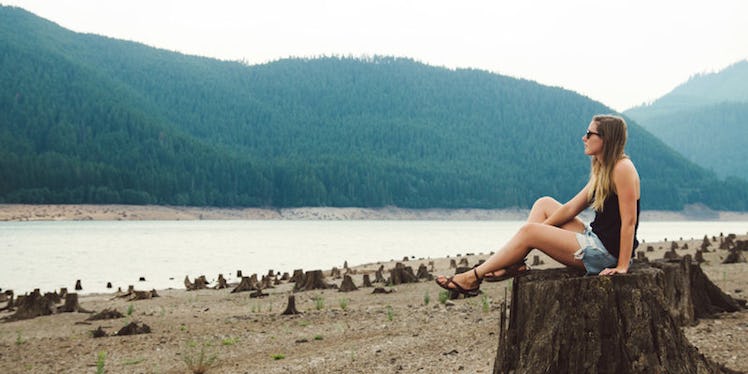
Stepping Outside 'Our' World: Lessons I Learned From Working With Special Needs Students
If there is one thing we do as we grow up, it is change our perception of life. We become jaded to almost everything. We become more negative, egotistical and selfish. We lose our imagination, our innocence and compassion for others.
For the past three years, I have been blessed with the ability to work with children who have special needs. I actually hate that: “children with special needs.”
Children who have a range of disabilities or handicaps are by no means less human; rather, they are unique. They are special, ambitious and have changed my life in such a way that merely expressing it in writing could never do it justice.
I am a teacher and I have learned more from my unique students than any professor could have ever taught me.
Lesson 1: We are alive; we have wants and needs.
A very common stereotype harbored about people who have autism is that they are unable to make their own decisions. However, the video below will reveal the reality of a young adult who has non-verbal Autism.
As you can see, noises and people don’t frustrate Carly. She’s frustrated that she cannot express herself. I urge you to continue to watch other postings of Carly’s struggle to familiarize yourself with her life and how our “issues” are so minuscule compared to her everyday struggle to communicate.
Lesson 2: We want your help; there is something you can do.
I have mainly worked with children who have emotional disabilities and autism. I have learned that often, they connect deeply with a certain topic. This topic can be anything: math, ice skating, drawing, television — anything.
The video below proves this and I applaud the featured parents for their techniques. It’s absolutely ingenious.
Lesson 3: We will love you more than you could ever imagine.
Here’s the best lesson I learned: My students taught me how to love again and to love purely, without judgments or biases. We can all agree that it is amazing to watch a child grow, but watching a child with special needs grow? It’s a life-changer.
Right before I received my master’s degree in early childhood special education, I was student teaching in a self-contained (a smaller class with a teacher and paraprofessionals) kindergarten, first grade room. I was assigned to help a young boy with autism. I was told that he had high sensory issues, his social skills weren’t the best and his natural attention span nearly nonexistent. But my God, was he hysterical.
This boy could memorize anything and everything he ever heard from another person, the radio or television. Imagine being in a reading lesson and someone starts singing “Monster” by Rihanna. He did just that and it was amazing.
Over time, we were able to push him academically because I decided to turn all his lessons into songs, games and character plays (I, myself, am a child). We laughed all day, danced in the halls so he wouldn’t be scared to go to the bathroom, and best of all, we were learning.
I learned how to let go, to love and to appreciate, all while he was just trying to be a “normal” kid.
On my last day, he took his little hand and placed it on my face. He looked at me and said “Ms. Teresa, I love you so much. Please don’t ever leave me.” After a pause to hold back my tears, he jumped into my arms and gave me such a strong squeeze. He asked me not to cry. “It’s okay,” he said. “Don’t cry. If you cry, I cry.” Naturally, I lost it.
I don’t think I ever realized just how much I had impacted his life; I was too focused on how much good he attributed to mine.
We are all on this planet for a reason: to live. How we live is what makes us all different, but there should be no difference regarding how we love and how we help.
Working with any individual who has special needs is an exceptional task. For the most part, they don’t lose sight of the beautiful things in life. Unlike us, they are selfless and compassionate to every living thing and without doubt, the most uplifting people to be around.
Loving the world and the people in it is never a question of how, but a question of how can we not? It’s something we should all ask ourselves.